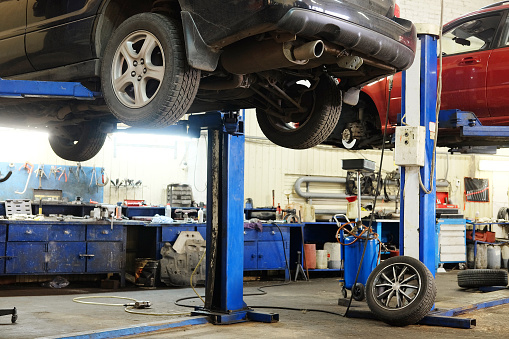All Categories
Featured
Brakes are arguably the most important security function of any automobile. Without reliable brakes, also the most effective automobile can come to be a threat on the road.
- The Relevance of Regular Brake Inspections. Brakes undergo continual damage with every usage, whether you're driving at broadband on the freeway or travelling through city roads. With time, brake pads, rotors, and other components wear down, which can affect braking efficiency. Without normal assessments, you may not notice the steady decrease in efficiency until it's far too late.
Routine brake inspections enable you to catch problems early, making sure that your brakes remain receptive, trustworthy, and safe. Timely examinations can additionally save you money by addressing minor concerns prior to they end up being pricey repair work.
- Typical Indicators That Your Brakes Required Attention. While regular brake assessments are necessary, there are some warning indications you can look out for to know when it's time to set up a check-up:
Squeaking or Grinding Seems: Piercing squeaks or grinding noises when using the brakes are commonly signs that your brake pads are worn and require substitute. Resonance or Pulsation: If you really feel vibrations in the steering wheel or the brake pedal, it could show warped blades, which might require resurfacing or replacing. Soft or Squishy Brake Pedal: If the brake pedal feels unusually soft or spongy, there may be air in the brake lines or an issue with the master cylinder. Pulling to One Side: If your auto pulls to one side while stopping, this might be triggered by uneven brake pad wear or a problem with the brake liquid. Boosted Quiting Distance: If it takes longer to quit than usual, it might indicate that the brake pads are put on, the liquid is reduced, or the rotors are harmed. If you notice any of these signs, it's finest to have your brakes checked promptly.

- Trick Parts Checked Throughout Brake Inspections. During a brake examination, a professional will certainly inspect several vital components of the braking system to ensure every little thing is functioning effectively. Below are the essential components entailed:
Brake Pads: The most typical reason for poor stopping performance is worn-out brake pads. Examining the density of the pads is a concern during every evaluation. Brake Rotors: Rotors ought to be smooth and without grooves or splits. Any significant damages to the rotors could result in endangered stopping effectiveness and uneven pad wear. Brake Liquid: Low or polluted brake liquid can harm braking efficiency. The specialist will certainly inspect the fluid levels and quality and change it if needed. Brake Lines and Tubes: Brake lines should be without leaks or fractures. Any kind of damage to the lines can cause loss of brake liquid, bring about brake failing. Brake Calipers: The calipers apply stress to the brake pads. They ought to be evaluated for signs of wear or leakages to ensure they are functioning correctly. Regularly checking these components aids maintain your brake system in peak condition, allowing you to stop your auto securely and efficiently.
- Exactly how Often Should You Have Your Brakes Checked? The general suggestion is to have your brakes evaluated at the very least annually or every 12,000 miles, depending upon your driving behaviors. Nevertheless, particular driving problems may require more regular inspections:
Rush Hour: If you commonly drive in stop-and-go website traffic, your brake pads will wear down faster. Mountain Driving: Driving on steep roadways requires more frequent braking, which can trigger your brakes to put on faster. Towing or Hauling Heavy Loads: If you on a regular basis carry hefty lots, your brakes will experience extra anxiety and call for even more regular assessments. If you observe any one of the warning indicators pointed out previously, do not await the next scheduled evaluation-- have your brakes checked immediately.
- The Effects of Overlooking Brake Inspections. Disregarding regular brake assessments can lead to serious repercussions. A failing brake system can result in minimized stopping power, which raises your risk of mishaps.
In the most awful instance, driving with harmed brakes can bring about finish brake failure, putting you and various other drivers at danger. Regular brake assessments are a tiny investment that can save your life and avoid costly repair work.
- Final Thought: Stay Safe with Regimen Brake Inspections. Brakes are not something you wish to take chances with. A trusted stopping system is important for risk-free driving, and normal brake evaluations are a straightforward method to guarantee that your auto stops when you require it most. By remaining on top of brake maintenance, viewing for alerting indications, and having your brakes evaluated at the suggested periods, you'll secure both your automobile and your security.
Don't wait until your brakes start to fall short-- schedule regular brake examinations and maintain your automobile in optimal problem for many years to find.
Latest Posts
The Importance of Routine Eye Tests for All Ages
Inexpensive, Custom Washroom Solutions That Fit Your Set Up
Past Comfort: FunCity Hotel's Entertainment Options for All Ages
